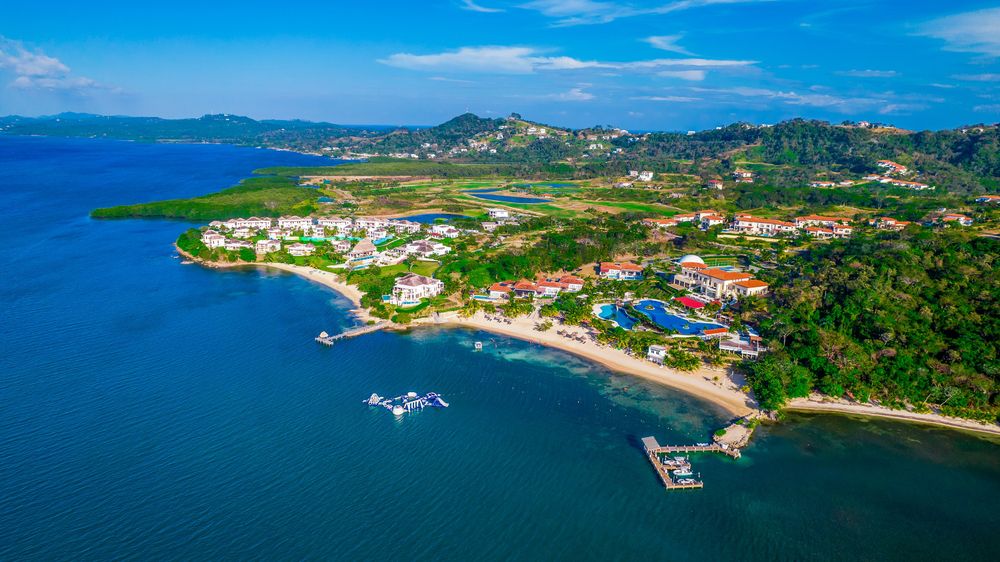How Próspera’s Lump Sum Tax Program Compares to the Rest of the World in 2025
The global tax landscape is shifting fast. As digital nomads, remote founders, and internationally mobile entrepreneurs redefine how and where they live, the need for flexible and legally recognized tax residency has become more important than ever. Yet most countries still rely on outdated, location-bound rules that do not match the realities of modern mobility.
Próspera, an innovative special economic zone on the island of Roatán in Honduras, has introduced a pioneering solution that directly addresses this gap. The Próspera Lump Sum Tax Residency Program is the first system that offers fully recognized tax residency through a remote-first process. It provides a predictable tax structure, clear legal standing, and minimal physical presence, all built for a world where people often live in multiple countries across a single year.
This program has an important origin. Joey Langenbrunner, founder of Nomad Layer, proposed the concept and collaborated closely with Próspera to design and launch it, creating the first true tax residency as a service framework available anywhere.
What follows is a comprehensive breakdown of how the program works and how it compares to other tax-friendly jurisdictions worldwide.
Why Próspera’s Lump Sum Tax Residency Stands Apart
Próspera designed its residency system to function for the globally mobile rather than forcing them to fit into old residency models. The foundation of the program is simple. Residents pay a flat $5,000 annual lump sum tax, a single predictable amount that replaces income brackets and variable tax calculations.
Tax residency is fully legitimate. Every approved resident receives an official Honduran tax residency certificate along with Próspera (e)Residency, which allows for remote onboarding, secure identification, and access to Próspera’s digital governance systems. These elements provide strong legal footing for banking, compliance, and international business structuring.
Residents also receive a Próspera company and official proof of address, two components that remove friction for global entrepreneurs who need dependable business infrastructure without unnecessary complexity.
The physical presence requirements are light. To remain in the program, residents must spend fewer than 90 days per year inside Próspera and visit at least 7 days per year. This makes Próspera one of the most flexible recognized tax residencies in the world.
Eligibility is strict and intentional.
Residents must not be tax residents anywhere else.
They must have legally exited their previous tax home before enrolling in Próspera’s program. This requirement ensures that the residency is internationally defensible and compliant with global tax standards.
How the Program Was Created
One of the most unique aspects of the Próspera Lump Sum Program is how it originated. Joey Langenbrunner of Nomad Layer identified a major gap in the global residency landscape. No jurisdiction offered a fully legitimate tax residency that could be set up remotely while accommodating the mobility patterns of modern entrepreneurs and nomads.
Joey proposed a new model directly to Próspera and worked closely with the jurisdiction to shape and implement the system. Through Próspera’s legislative processes, the concept became a codified, transparent, and internationally viable tax residency option. The result is a residency framework created specifically for remote-first lifestyles, rather than adapted from older systems.
How Other Countries Compare in 2025
Around the world, many jurisdictions offer tax incentives, but nearly all of them assume that residents will spend significant time within their borders. Most systems were built before remote work was mainstream, and their structures reflect that era.
Take Georgia. It offers low taxes, yet tax residency is tied to meaningful physical presence. Maintaining residency without spending real time there is not realistic.
Paraguay is often discussed among nomads, but permanent residency does not automatically produce tax residency. Applicants usually need extended stays and documented ties before receiving a recognized tax home.
Panama remains a strong choice for international founders, but even the Friendly Nations Visa requires in-person visits, local accounts, and ongoing personal and economic presence. It is not a remotely maintained residency.
In the United Arab Emirates, residents enjoy zero percent income tax, but they must lease or own property and spend enough time in the UAE to keep the residency valid. This system works well for expats who relocate, but not for highly mobile individuals.
Malta provides a respected residency option, although the financial obligations are considerably higher. Fees, minimum payments, and annual costs quickly exceed Próspera’s simple lump sum.
The Cayman Islands offer strong tax benefits, but residency usually requires significant investment or property ownership, making the barrier to entry far higher than Próspera’s.
What becomes clear is that traditional jurisdictions assume physical presence, local commitment, and deeper integration. They are effective for relocation but not designed for global mobility.
Próspera is the only jurisdiction offering a truly remote-first legal tax residency with predictable taxation, minimal presence, included business infrastructure, and (e)Residency, all built around the needs of nomads and remote founders. This combination does not exist anywhere else.
Who the Program Works Best For
Próspera’s residency is ideal for people who live internationally, earn globally, and want stability without tying themselves to a specific country full-time. It is designed for remote entrepreneurs, consultants, digital professionals, investors, and individuals who need a reliable and legally recognized tax home while maintaining a mobile lifestyle.
It is also specifically intended for individuals who have exited their previous tax residency and do not claim tax residency anywhere else.
A New Era of International Tax Residency
Governments worldwide are tightening tax regulations and demanding clearer proof of residency. As mobility increases, so does the need for jurisdictions that support modern lifestyles with clarity and legal certainty. Próspera’s Lump Sum Tax Residency Program is the first system built from the ground up for this new reality. It is transparent, legally defensible, stable, and intentionally designed for mobility rather than relocation.
Thanks to the collaboration between Próspera and Joey Langenbrunner of Nomad Layer, this remote-first residency is available today. It represents the future of global tax planning. It is a model that aligns with the way people live and work in 2025.

